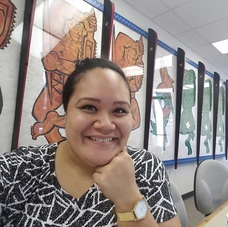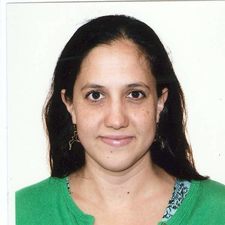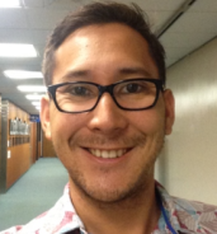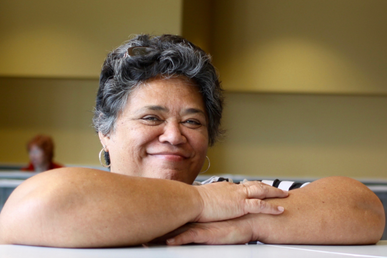UA HIKI MAI KE AU HULIHIANā Hawaiʻi ʻImi Loa, the Native Hawaiian Librarian Association, stands in full and complete solidarity with the Black Lives Matter movement and our colleagues in the Black Caucus of the American Library Association. We endorse BCALA's May 28 statement, and we join them in denouncing the never-sleeping "systemic machinery of racism." We mourn the senseless murders of George Floyd, Breonna Taylor, Ahmaud Arbery, and countless others who came before them in a shameful and heinous history of racist violence against Black people. We vehemently oppose the oppression, white supremacy, and systemic injustices that the Black community faces every day in America. We affirm the power of protest. We strongly condemn police brutality and the use of weapons of mass destruction (tear gas, rubber bullets, brute force) against peaceful protesters and protectors. We know that Black experiences differ from that of kānaka Hawaiʻi, and we also know that our histories share many similarities. In 1845, Prince Alexander Liholiho was forced by an American train conductor to leave his car because the conductor thought he was Black. In 1901, Queen Liliʻuokalani was denied lodging at several hotels in New York City because of her skin color. In 1903, Prince Jonah Kūhiō Kalanianaʻole and Princess Elizabeth Kahanu were removed from their viewing box at an American theater because of their dark skin. And in 1932, Joseph Kahahawai was murdered by his white kidnappers after being falsely accused of raping a white woman. This is a human rights issue. This is a political issue. This is an environmental issue. Mai ka lā hiki a ka lā kau, mai ka hoʻokuʻi a ka hālāwai: this issue affects us all. Hawaiʻi's communities are not immune to the indoctrinations of anti-blackness. Therefore, we, Nā Hawaiʻi ʻImi Loa, stand committed to upholding justice for Black, Indigenous, and People of Color in our pervasively white profession. We commit to centering Black voices in the fight against racial violence and injustice. Libraries, archives, and museums were built upon the backs of colonized, marginalized, and oppressed people. That ends with us. Now is the time for our local library communities to shift the burden from the underprivileged to the privileged. We challenge our colleagues to actively work towards dismantling systems of racial inequality using education and advocacy. The greatest harm of this world is the culture of white supremacy. Ua hiki mai ke au hulihia. Black lives matter in Ke Aupuni Mōʻī Hawaiʻi and beyond. Na mākou nā lālā o Nā Hawaiʻi ʻImi Loa, Kawena Komeiji, Annemarie Paikai, Keahiahi Long, Shavonn Matsuda, Erica Dias, Keikilani Meyer, Michiko Joseph EDUCATE:
DONATE:
5 Comments
 Name: Keahiahi Long Where are you from? I spent most of my childhood in Kāneʻohe. Then, I lived in Mānoa for about 10 years. And, now, have been living in Maunalua for the last 3 years. Why did you decide to work in the Library and Information Science profession? I love to research. I love constructing a story from other stories. And working in the information science field has really helped me become a better researcher - I'm better able to find, evaluate, contextualize, and use information to address my needs. What excites you about Nā Hawaiʻi ʻImi Loa? What excites me about NHIL is that it provides a space for me to engage with others who are passionate about what I'm passionate about, e.g.: Hawaiian librarianship; representation/communication of ʻike Hawaiʻi in various formats and environments; information literacy of/for poʻe Hawaiʻi.  Name: Annie Thomas Where are you from? I am from wet & rainy places - born in Hilo, raised in Maunawili, lived in Portland, OR for a bit, and currently living in Mānoa. Why did you decide to work in the Library and Information Science profession? For me, being a librarian is the perfect intersection of research, books, information, community, culture and empowerment. I have always loved libraries. My mom is a librarian and my childhood was blessed with an abundance of books. As an undergrad, I loved research. I could spend hours in the library, poring over microfilmed newspapers. But I didn't even consider becoming a librarian until about a year after graduating from college. I realized that if I had to get a "real" job, working in a library seemed like the best place to be. What excites you about Nā Hawaiʻi ʻImi Loa? NHIL is exciting because it is a venue for support, collaboration and growth for those interested in the role of the library and information science field in supporting the organization of and access to ʻike Hawaiʻi.  Name: Kapena Shim Where are you from? I was born in Honolulu, raised in Southern California. My maternal side of the family is from Kaimukī and Kāneʻohe. My paternal side of the family is from Mānoa. Why did you decide to work in the Library and Information Science profession? I wanted to work in the information science profession because I saw the need for more access points to Hawaiian ʻike. At the time I made the decision to join LIS, I was working a lot with the Hawaiian language newspapers and saw how difficult it was to find relevant content because there was no index and the full-text search was not comprehensive. I wanted to become an academic librarian after my internship with the Hawaiian and Pacific Collections because I really enjoyed helping students connect to information, especially Hawaiian students. I see myself as a bridge that can help students better engage with materials held in our libraries and archives. What excites you about Nā Hawaiʻi ʻImi Loa? I am excited by the opportunity that NHIL presents, an opportunity that will help the local profession further advance information services to our Hawaiian communities.  Name: Keikilani Meyer Where are you from? I was born in Honolulu, raised in Kailua and currently reside in Pauoa on the island of Oʻahu. Why did you decide to work in the Library and Information Science profession? During my time as the Interim Director for ALU LIKE's Native Hawaiian Library, I saw firsthand the positive impact libraries can make on a person (from keiki to kupuna), family, and community by providing library services that will increase their access to Hawaiian resources, teach them how to retrieve information, and strengthen their literacy skills. What excites you about Nā Hawaiʻi ʻImi Loa? I'm excited about NHIL because it represents the fact that we've reached critical mass within our profession. As a result, NHIL can provide a leading role in the organization, dissemination, and preservation of Hawaiian knowledge. NHIL is important to me because I grew up during a time when Hawaiian knowledge was not accessible, which resulted in my having no prior knowledge of my history, culture, and language until the age of 41. NHIL will make sure this doesn't happen to someone else. |
Newsletter ArchiveClick here to view the current and past NHIL Membership Newsletters. ArchivesCategories |
||||||

 RSS Feed
RSS Feed